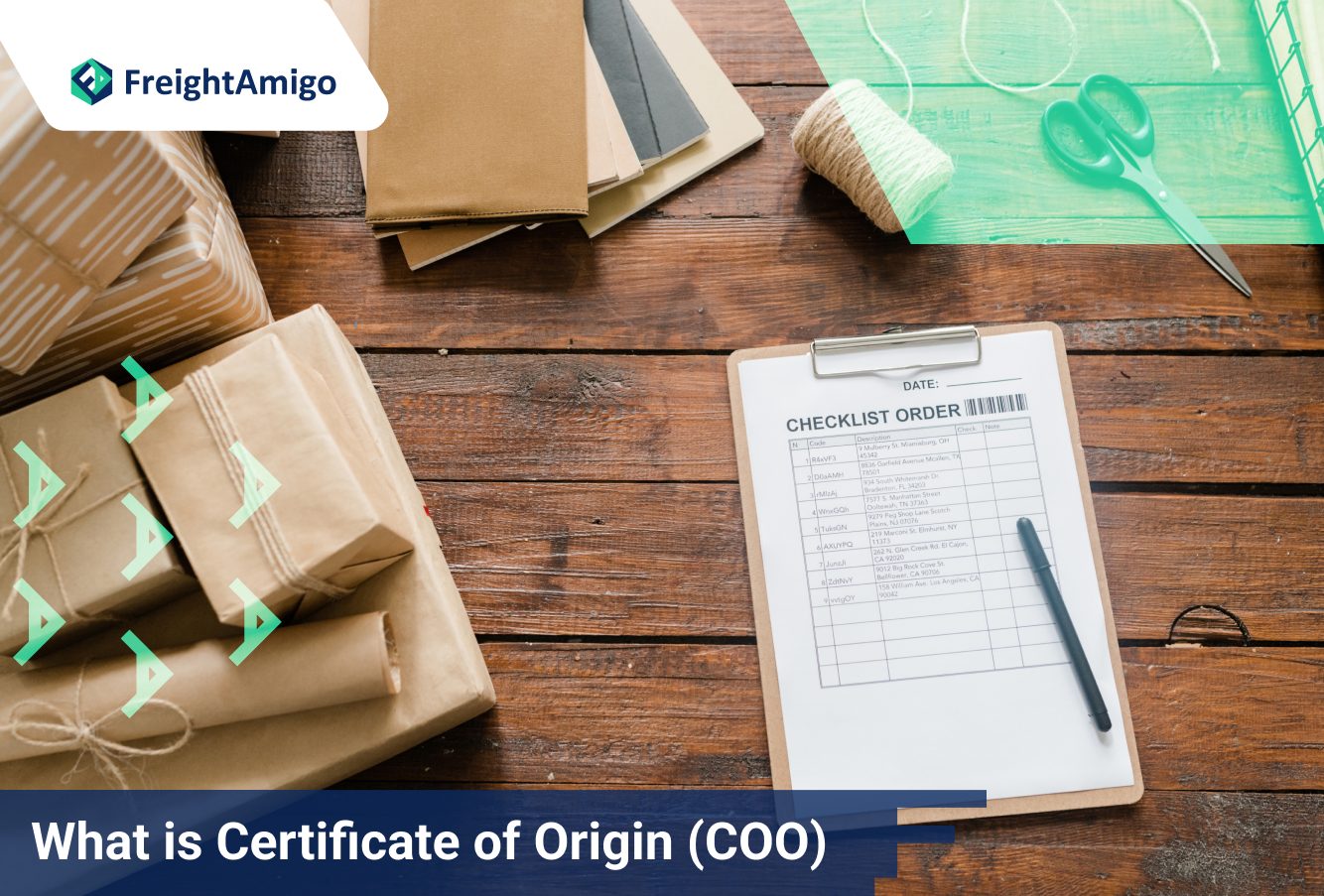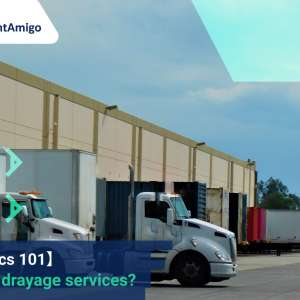What is a Certificate of Origin (COO) ?
Latest update on 27 March, 2024 by Aurora Park– Marketing Analyst at FreightAmigo
In the world of international trade and shipping, a Certificate of Origin (COO) plays a crucial role in determining the origin of goods being exported or imported. It is a document that confirms the country where the goods were manufactured or produced. The COO serves as proof of origin and is often required by customs authorities to determine eligibility for preferential tariffs, trade agreements, and other trade-related benefits. FreightAmigo has written an informative article that explores the importance of a Certificate of Origin (COO) in international trade and shipping.
Want To Compare The Best Express, Air Freight, Sea Freight, Rail Freight & Trucking Rates So As To Have Better Control On Cost?
Why is a Certificate of Origin (COO) Important?
The COO is a vital document in international trade because it enables customs authorities to verify the origin of goods and apply the appropriate duties, taxes, and trade policies. It helps prevent fraud, ensures compliance with trade regulations, and promotes fair trade practices. Additionally, a COO may be required to qualify for preferential treatment under free trade agreements, such as reduced tariffs or exemptions.
The Need for a Certificate of Origin (COO)
- Customs Compliance: Customs authorities use the COO to determine the country of origin and assess the correct duties, taxes, and fees. This ensures compliance with import regulations and prevents incorrect classification or fraudulent claims.
- Trade Agreements and Tariff Preferences: In cases where countries have established trade agreements or preferential tariff programs, a COO is necessary to qualify for the benefits. These agreements reduce or eliminate tariffs, making exports more competitive and increasing market access for businesses.
- Product Safety and Quality Control: The COO can also serve as an indicator of product safety and quality control. Certain countries have specific requirements or restrictions on products based on their origin, and a COO helps verify compliance with these regulations.
When is a Certificate of Origin (COO) Required?
The requirements for a COO vary by country and product. In general, a COO may be required in the following situations:
- Free Trade Agreements: When exporting to countries with free trade agreements or preferential trade arrangements, a COO is often necessary to claim preferential tariff treatment.
- Import Restrictions and Regulations: Some countries have import restrictions or regulations based on the origin of goods. In these cases, a COO may be required to ensure compliance.
- Government Procurement: Government entities often require a COO when procuring goods or services. The COO helps ensure transparency and compliance with procurement regulations.
- International Tenders and Contracts: When participating in international tenders or contracts, a COO may be requested to demonstrate the origin of goods and comply with contract terms.
How to Obtain a Certificate of Origin (COO)
Obtaining a COO involves several steps, which may vary depending on the country and certification process. Here is a general outline of the process:
- Determine the Applicable Rules and Regulations: Research the specific requirements for the COO in both the exporting and importing countries. Understand the regulations, documentation, and procedures involved.
- Determine the Eligibility for Preferential Treatment: If the COO is required for preferential treatment under a trade agreement, ensure that the goods meet the specific criteria outlined in the agreement. This may involve meeting rules of origin, value-added requirements, or other qualifying criteria.
- Complete the COO Application Form: Fill out the COO application form accurately and provide all the required information. This typically includes details such as exporter and importer information, product description, quantity, value, and the country of origin.
- Gather Supporting Documents: Collect any supporting documents required for the COO, such as commercial invoices, packing lists, bill of lading, and other relevant trade documents. These documents may be needed to prove the origin of goods.
- Submit the Application and Supporting Documents: Submit the completed COO application form and supporting documents to the designated authority or chamber of commerce responsible for issuing COOs. Pay any applicable fees and follow the submission guidelines provided.
- Verification and Certification: The authority or chamber of commerce will review the application and supporting documents to ensure compliance with the regulations. If approved, they will issue the COO, certifying the origin of the goods.
- Retain Copies for Recordkeeping: Keep copies of the issued COO for recordkeeping purposes. These documents may be requested by customs authorities, buyers, or other relevant parties in the future.
Benefits of Having a Certificate of Origin (COO)
A valid COO offers several benefits to exporters and importers:
- Access to Preferential Tariffs: A COO can help businesses qualify for preferential tariffs under free trade agreements or preferential trade programs. This reduces import costs and makes exports more competitive.
- Compliance with Trade Regulations: By providing accurate and verifiable information about the origin of goods, a COO helps businesses comply with trade regulations and avoid penalties or delays at customs.
- Market Access and Competitive Advantage: Having a COO can enhance market access by demonstrating compliance with import regulations and eligibility for preferential treatment. It also gives businesses a competitive advantage by offering cost savings to customers.
- Building Trust and Credibility: A valid COO adds credibility to a business’s claims about the origin of goods. It helps build trust with customers, trading partners, and regulatory authorities.
Conclusion
In conclusion, a Certificate of Origin (COO) is a vital document in international trade and shipping. It confirms the origin of goods and enables customs authorities to apply the correct trade policies, duties, and taxes. Obtaining a COO involves understanding the specific requirements, completing the application process accurately, and complying with trade regulations. Having a valid COO offers several benefits, including access to preferential tariffs, compliance with trade regulations, market access, and building trust and credibility. By understanding the importance of a COO and following the necessary steps, businesses can navigate the complexities of international trade more effectively and reap the associated benefits. FreightAmigo is dedicated to assisting businesses in navigating the complexities of international trade, including the process of obtaining a Certificate of Origin (COO).
There Are Different Options For Cargo Transportation. If You Want To Choose The Most Convenient And Suitable Solution, It Is Best To Have The Full Support Of Logistics Experts! If You Are Planning To Ship Goods Overseas, Please Go To The FreightAmigo Page For Inquiries.
Read More:
Logistics information systems | Key Components | FreightAmigo
What is Supply Chain Finance | FreightAmigo
What is General Rate Increase (GRI)? | FreightAmigo
If you have any inquiries on logistics/supply chain, feel free to contact FreightAmigo now:
Chat with us online | Hotline: +852 28121686 | WhatsApp: +852 27467829









































